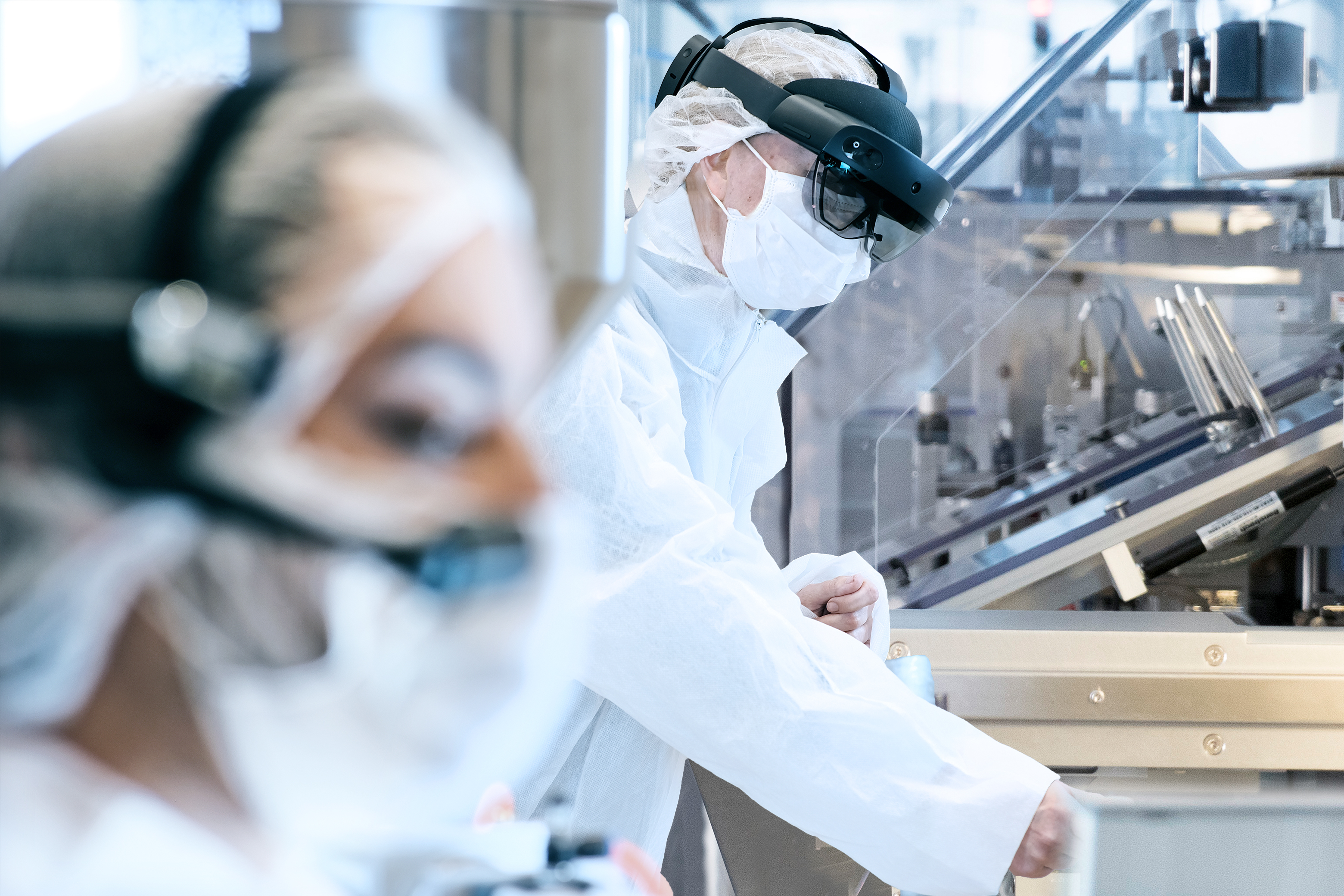Our first roundtable for “Augmented Reality in Pharma” brought more than 30 thought-leaders together.
On January 15, Goodly Innovations and NNIT hosted the first roundtable to discuss the benefits, usage and operations of augmented reality solutions in pharmaceutical production and laboratory environment among industry experts.
The discussions at this first AR Roundtable have confirmed:
Augmented Reality is an up-and-coming technology which is getting a lot of attention, also in the pharmaceutical industry, but that the industry is facing some challenges to be mastered: AR devices in the cleanroom, process maturity, regulatory requirements, to mention just a few.
"We are drowning in data, but are starving information."
With the AR in Pharma Roundtable we have created a platform and a community to discuss important AR related topics with early adopters and experts from the pharmaceutical industry with focus on interactivity and knowledge sharing.
Topics of the first AR Roundtable were
- AR & smart devices for the pharma and biopharma environment
by Tobias Rodenfels from Boehringer Ingelheim - Digital Process Maturity - Assess performance, define priorities, derive actions and clean-up before digitalizing waste
presented by Marten Ritz from the University of St. Gallen - GDPR and electronic digital image records
presented by Eckhard Herych from NNIT
Key take-aways:
Benefits of AR
AR will make the pharmaceutical industry faster and better by
- providing improved operator guidance,
- presenting information to operators without disrupting their current activities
- automate the documentation of key operations activities.
Using AR in a production environment will reduce the no. of non-value adding activities significantly and avoid stress for the whole organization
Less stress and a lower probability of making mistakes lead to an increasing level of perfection and less deviations
AR in the Smart Pharma Factory
The Smart Factory is defined as the “Future state of a fully connected manufacturing system, mainly operating without human force by generating, transferring, receiving and processing necessary data to conduct all required tasks for producing all kinds of goods.” (source: Osterrieder, Budde & Friedli (2019): The Smart Factory as a key construct of Industry 4.0: A systematic literature review)
To achieve a Smart Factory, we need to understand our production environment and transition from descriptive to prescriptive analytics:
- What happened?
- Why did it happen?
- What is likely to happen?
- What should be done?
Before investing into digitalization, we need to understand what the expected business impact by assessing the current maturity level
Digitalization requires a holistic approach instead of digitizing individual processes.
Digitalization is not a purpose in itself or the cure to business challenges but can be a powerful enabler for improvement.
AR and GDPR Compliance
The EU General Data Protection Regulation (GDPR) has also an impact on using AR in a professional environment
GDPR risks that need to be considered and mitigated before applying AR technology are
-
- motion profiles of individuals might be created
- AR devices might be misused for video surveillance
- video recoding of other colleagues might be made
- introduction of AR technology is subject to agreements with the works council in many countries and ruled by local laws, e.g. § 87(1) BetrVG in Germany
- determination of who has access to the information collected by AR devices
- possibility of manipulating data and information collected via AR devices (data integrity)
- health of the users by wearing AR devices
It is important that a Data Protection Impact Assessment is conducted by an expert before the implementation of AR technology in a working environment according to article 35 GDPR
Consequences of violating GDPR regulations might be severe financial penalties (up to 4% of annual global turnover of the company)
Recommendations to mitigate the GDPR risks associated with AR technology are to
-
- adopt a „Privacy by Design and Default“ approach
- identify, document, and test the purpose of data processing, data elements captured, retention and disposal of information
- make GDPR requirements a standard in your AR projects
The 30 participants of this first AR Roundtable were from various pharmaceutical companies like Almirall, Astellas, Bayer, Boehringer Ingelheim, Fresenius, GSK, Hoffmann La-Roche, Johnson & Johnson, Merck, Novartis, Novo Nordisk, Takeda, and Xelia.
Although this event was online, we had lively and engaged discussions on the different topics. At the end of the day, it was agreed to continue sharing experience and best practices in this professional environment, and therefore repeat the AR Roundtable later in 2021. If you would like to be part of the AR in Pharma community and / or attend the next AR in Pharma Roundtable, please drop us a message.

